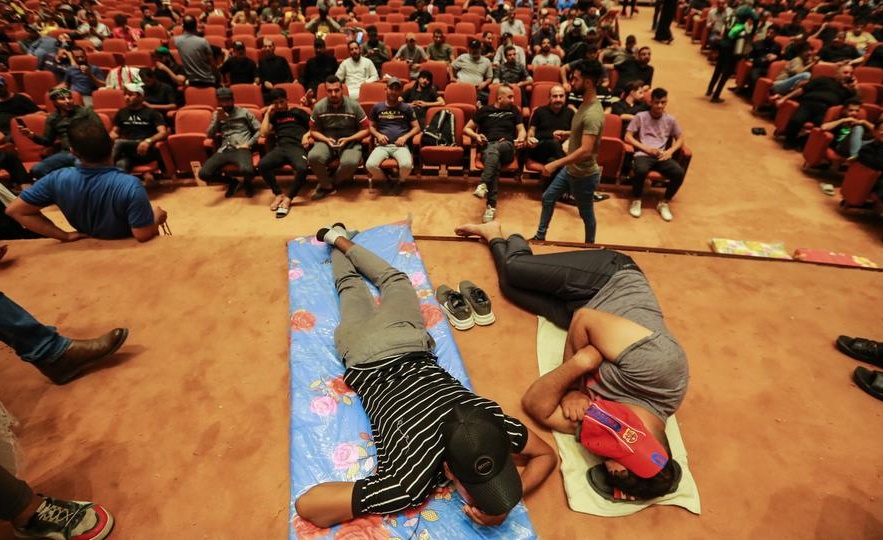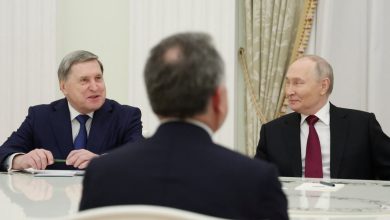Power struggle in Iraq: Parliament in Baghdad remains occupied
Thousands of supporters of the Shiite cleric al-Sadr continue to camp in parliament.

Observers warn that if even the smallest counter-offensive takes place, an escalation of violence is likely.
Dozens of men dance in a circle, form a kind of polonaise and sing. They wave flags and hold up pictures. Others have settled on mats and are sleeping. The seemingly peaceful scenes are a deceptive image – because the location for them is none other than the Iraqi parliament.
What is happening here is extremely dangerous. Thousands of supporters of the influential Shia cleric Muqtada al-Sadr are still camping in the building. “We as a people have a leader and we follow orders unconditionally,” said one protester. “If he tells us to back off, we do that, but if he tells us to stay, then we stay – God willing.”
According to observers, the situation in Iraq is extremely tense: if even the smallest counter-offensive is launched, an escalation of violence is very likely. So far, security forces have only used tear gas and water cannons, and more than 100 people have been injured.
Sit-in: No end in sight
The demonstrators entered Baghdad’s green zone on Saturday and stormed parliament for the second time this week – concrete walls were simply torn down. Sadr’s supporters announced an indefinite sit-in in parliament and said they would stay until their demands were met.
In Iraq there is a bitter power struggle within the majority of the population – Shiites against Shiites. Some are in favor of influence from neighboring Iran, while others – that is, the supporters of Muqtada al-Sadr – reject outside interference.
Retreat paves way for rival
Al-Sadr actually received the most votes in the parliamentary elections last October, but he failed to form a government. After months of deadlock, the frustrated religious leader and his MPs withdrew from parliament in June – giving his rivals, led by former Prime Minister al-Malikis, the majority they needed.
When they wanted to elect a new prime minister, al-Sadr had his people march out – probably to prove once again what power he has in Iraq and that he can mobilize the masses.
Al-Sadr’s political opponents are now trying to appease them in order to avoid an escalation of violence: “They are calling for dialogue,” said Wael el-Rekaby of the Iraqi National Media Observatory. Everyone got the message – the current situation can have serious consequences for Iraq. That is why al-Sadr’s opponents have made it clear that they oppose any escalation that could lead to clashes.
Formation of government unclear
But al-Sadr announced in the afternoon that he was rejecting negotiations. The occupation of Parliament continues unabated. How a new government is supposed to emerge in this chaos is completely unclear. And many observers fear a new wave of violence in Iraq.
Turkey reopens customs gates with Iran, Iraq
Turkey ‘neutralizes’ 5 PKK terrorists in northern Iraq

